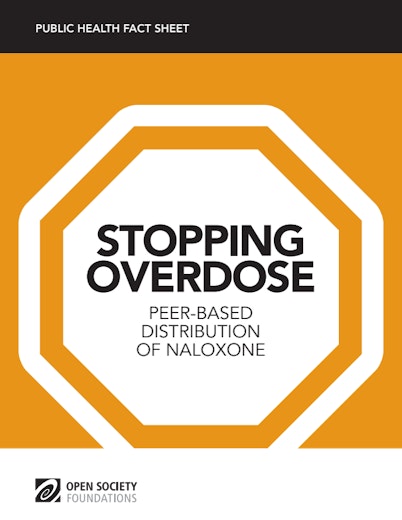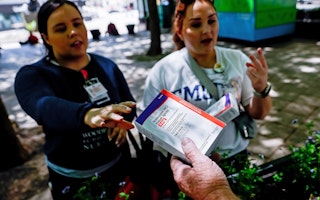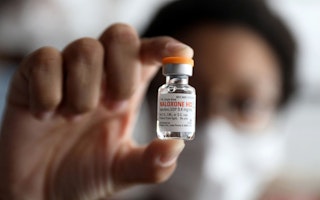Police, Overdose, and Moral Responsibility
By Roxanne Saucier & Azzi Momenghalibaf
People should be congratulated rather than punished for acting to save a life: this seems like a foregone conclusion. But in many countries, people who use drugs are compelled to make the harsh choice between saving a friend who is overdosing and risking arrest.
As one drug user in New York said to a researcher, “There is the police factor... So you might be more scared about the damn cops than saving someone's life. So that’s the choice you gotta make. You might be facin' some serious time.”
When drug laws get in the way of saving lives, a change in the moral calculus is needed. At least eight U.S. states have taken action, providing immunity for drug possession prosecutions for those found with drugs at the scene of an overdose—whether they’re the victim or a bystander who makes a good-faith effort to call for help. Other states have similar bills in the works.
Fortunately, many police choose to do the right thing. Sixty-two percent of police surveyed in Seattle, Washington said that they wouldn’t have made an arrest at an overdose scene, even before a “Good Samaritan” law was enacted to explicitly grant immunity to those who helped someone who was overdosing.
Good Samaritan laws definitely make a difference to people who use drugs—people who’ve likely had run-ins with police in the past. A study in New York City found that fatal drug overdose was significantly higher in areas with higher misdemeanor arrest rates. The authors suggest that witnesses in these areas may be more reluctant to call for help, owing to their distrust of police. In the state of Washington, on the other hand, 88 percent of opioid users interviewed said that now that they’re aware of the state’s Good Samaritan law, they’d be more likely to call emergency services during a future overdose.
Other countries are also taking action to prioritize saving lives over harmful zero tolerance. In the Republic of Georgia, the Minister of the Interior recently took the positive step of instructing police to refrain from investigating overdoses for the purposes of prosecution. With no guarantees in writing, however (and a new Minister of Interior recently installed), drug users will likely be hesitant to call for emergency help.
While laws that encourage people to call for emergency help are important, perhaps even more vital are laws that explicitly allow laypeople to carry and administer the opioid antidote naloxone. Too many countries, including China, Macedonia, and Vietnam, unnecessarily limit access to this extremely safe and easy-to-use medicine, in various ways restricting naloxone supply or administration to medical professionals.
While most people wouldn’t hesitate to inject a medication to rescue a diabetic or someone having an allergic reaction to beestings, the criminalized nature of drug use makes people afraid that they will be prosecuted for trying to save a life.
Of course, saving lives is morality of the highest order. Countries with high rates of overdose should follow the lead of those places that have made it possible to carry and administer the lifesaver naloxone without fear.
This is part one of a two-part blog series in advance of Overdose Awareness Day on August 31, 2012. Part two will discuss ways that police can positively respond to stop overdose.
Roxanne Saucier is a researcher and analyst for the Open Society Public Health Program.
Until November 2021, Azzi Momenghalibaf was a senior program officer with the Open Society Public Health Program.


